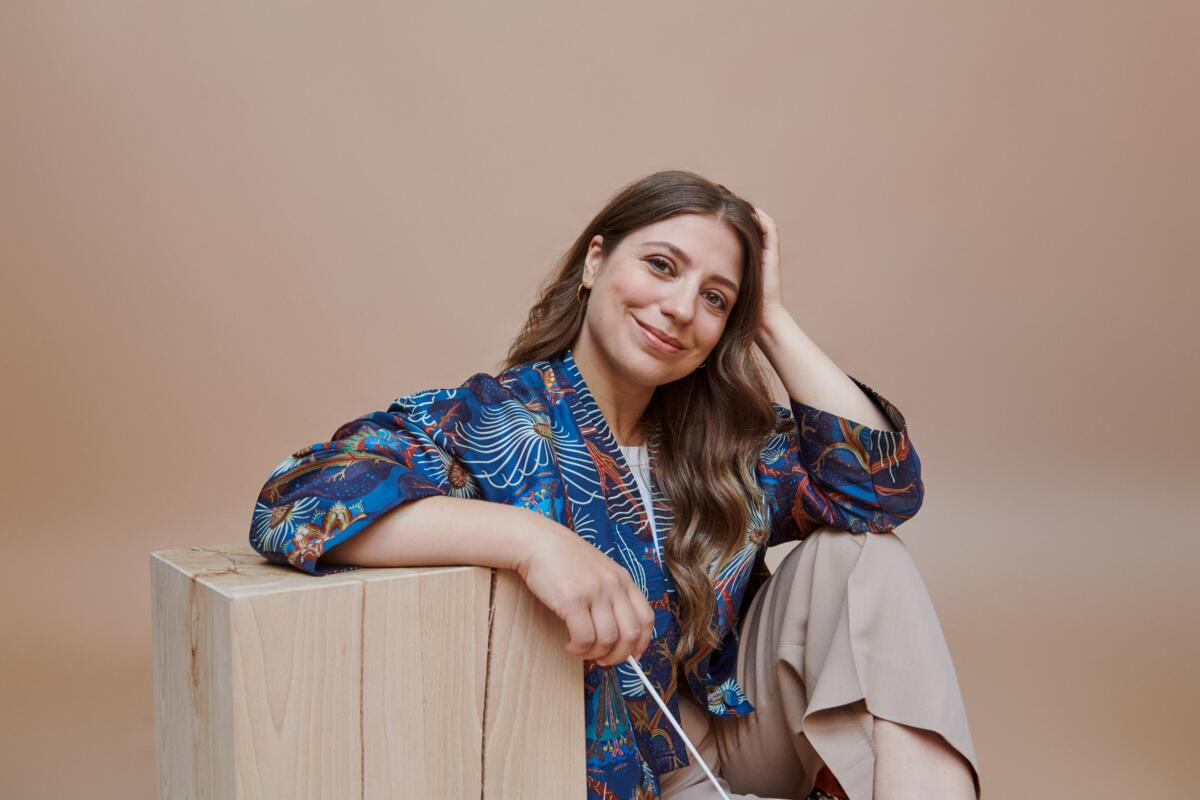Conductor Dalia Stasevska shares melodies of hope and collaboration for Ukraine
As her alumni contribution to the University of the Arts Helsinki, Stasevska has initiated a support concert for Ukrainian music education at the Helsinki Music Centre on April 6th.

Globally acclaimed conductor Dalia Stasevska was named the University of the Arts Helsinki’s Alum of the Year 2022. She has been actively involved in public discussions and has been assisting Ukrainians since 2022. Now, she brings together the Sibelius Academy Symphony Orchestra and 33 Ukrainian music students to practice and perform amidst the gems of Finnish and Ukrainian classical music. The program includes Ukrainian composer Bohdana Frolyak’s piece Let There Be Light, Jean Sibelius’s Violin Concerto, Myroslav Skoryk’s Melodia, and Uuno Klami’s Kalevala Suite.
What inspired the idea for a support concert for Ukraine?
When asked for an alumni project idea, I immediately thought it would be fantastic to bring young Ukrainians out of the midst of war to Helsinki and the Sibelius Academy – to perform Finnish and Ukrainian classical music side by side. To my great delight, this project became a reality!
I wanted to include music from both countries in the program; for Finns to hear Ukrainian music and for Ukrainians to play Finnish compositions. Lviv-born Frolyak is, in my opinion, one of the most interesting contemporary Ukrainian composers. Skoryk’s “Melodia” is to Ukrainians what Sibelius’s “Finlandia” is to Finns; everyone knows it, and the piece has played a crucial role in providing comfort during the war. Klami’s “Kalevala Suite” is a lovely piece for young musicians to play. Sibelius’s Violin Concerto is a classic, and we were fortunate to have Elina Vähälä as the soloist. She is one of Finland’s finest violinists!
What is your relationship with Ukraine and Ukrainian music?
I consider myself completely Finnish, but I have a Ukrainian heart. I got to know my father’s homeland better only in adulthood and visited for the first time in 2001. I’ve also familiarized myself with Ukrainian music history and repertoire in adulthood. During the war, Ukraine has become a matter close to my heart. In my career, I am in a position where I can genuinely help and do things for the country’s benefit, and as an artist, I want to use the opportunity granted to me to help Ukrainians and make Ukrainian music known.
Ukrainian culture has been systematically suppressed and oppressed for centuries. Ukrainians have only truly been able to present and discover their own music since gaining independence in 1991. Especially now, culture and music have become immensely important in strengthening identity, and people are fighting for survival concretely; it cannot be detached from the circumstances. During this war, I have for the first time understood the significance of “Finlandia” for Finns – what it means to be under another power without the opportunity for free self-expression or national identity. But then a composition appears whose significance everyone understands! I’ve also noticed that I conduct “Finlandia” differently than before. For example, in the middle hymn section, I’ve now conducted quietly and slowly, savoring every word: what it means to quietly and secretly express a hope for freedom.
Ukrainian culture is very different from Finnish culture, and that contrast is fascinating. At the same time, however, I see many similarities in our countries’ histories, and that touches me. Finns have been exceptionally proactive in helping Ukrainians, whose fate holds something familiar to us.
You have visited Ukraine several times even during the war. What does the Ukrainian music education and music life need right now?
I believe internationalization is crucial. Unfortunately, Ukraine has long been a closed country and has suffered from hundreds of years of imperialism and oppression. However, there is now a new generation born into free Ukraine with a need to see the world to be able to return to rebuild their homeland. All kinds of international collaborations with Ukrainian universities and arts institutions are very important. I also hope that in the future, Ukraine will host more international competitions and festivals, which would increase activity, openness, and interest in the country. There is no lack of talent there – only resources.
We also know that when the war ends, reconstruction is just beginning. It’s a long road that is difficult to even grasp at this point. Fortunately, the world has evolved, and we are more experienced, for example, in dealing with war trauma. The world is more international, and I have a lot of faith and hope for the future.
How do you see music can help and support people in crises?
When words are no longer enough, music is one of the most beautiful and comforting ways to communicate. It’s a very personal but also communal experience. Music can initiate a personal process where one can deal with emotions through melodies, without explanations. Music brings a reminder of normal times to completely abnormal circumstances, of how we should feel if everything were well. When I’ve conducted concerts in Ukraine during the war, we’ve had a lot of fun with the audience. On those concert evenings, music has provided energy.
Music has also saved me; during these two years of war, I’ve seen and heard things that no one should witness and deal with. Music has kept me sane amidst horrors. It has reminded me of all the good that humanity is capable of and created belief that good conquers evil. Along the way, it has only strengthened my understanding of how significant the power of music is in our world. Its value cannot be measured in money, but its spiritual value is immeasurable.